by Robert Case | Oct 18, 2024 | Uncategorized
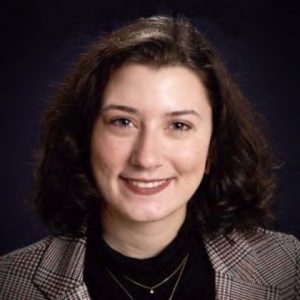
My name is Annie Hebel, and I am a Senior studying Diplomacy and International Relations, Spanish, and Journalism at Seton Hall University. Currently, I am interning with the Refugee Support Services (RSS) division of the International Rescue Committee in Elizabeth, NJ. In this role, I directly support a caseworker in her work with newly arrived families with some form of humanitarian parole, mainly from Haiti and Cuba. My daily tasks often include observing client intakes, filing public benefits applications, and assisting with client communication in Spanish and Haitian Creole.
The most interesting part of my job is getting to learn about the experiences of my clients and helping alleviate them out of difficult situations. Many people who enter the U.S. with humanitarian parole face a significant backlog of time before they can start to work or receive benefits, which often leaves them vulnerable to economic or financial exploitation. The support offered at the IRC helps prevent migrants from falling victim to this by providing a space for them to ask questions and learn about all of the options available to them for support.
This has been a particularly valuable experience thus far because, though I have gotten experience in various other forms of immigration work, I have never worked in a direct support role. Because I want to go into immigration, this is an invaluable experience. I am learning so much about how to respond to direct needs of migrants and develop relationships with organizations that can provide aid. I am also learning so much about how to communicate with clients who speak little to no English, improving my intercultural
communication skills. However, this has also been the biggest challenge – most of our clientele speaks Haitian Creole, which I am only just beginning to learn. It has proven a challenge to be able to fully support these clients and also adjust to using translation services.
Through my internship, I have confirmed that while I want to continue to pursue a career
in the immigration space, I feel as though I am not the most qualified for a direct support, social work-focused role and instead would prefer to work in the legal area of immigration. However, this position has been invaluable to help me develop skills that will translate, such as intercultural communication and a chance to learn and practice Creole. Overall, I would recommend this internship, especially for people who are interested in working with immigrant populations.
-Andrea Hebel, ‘24
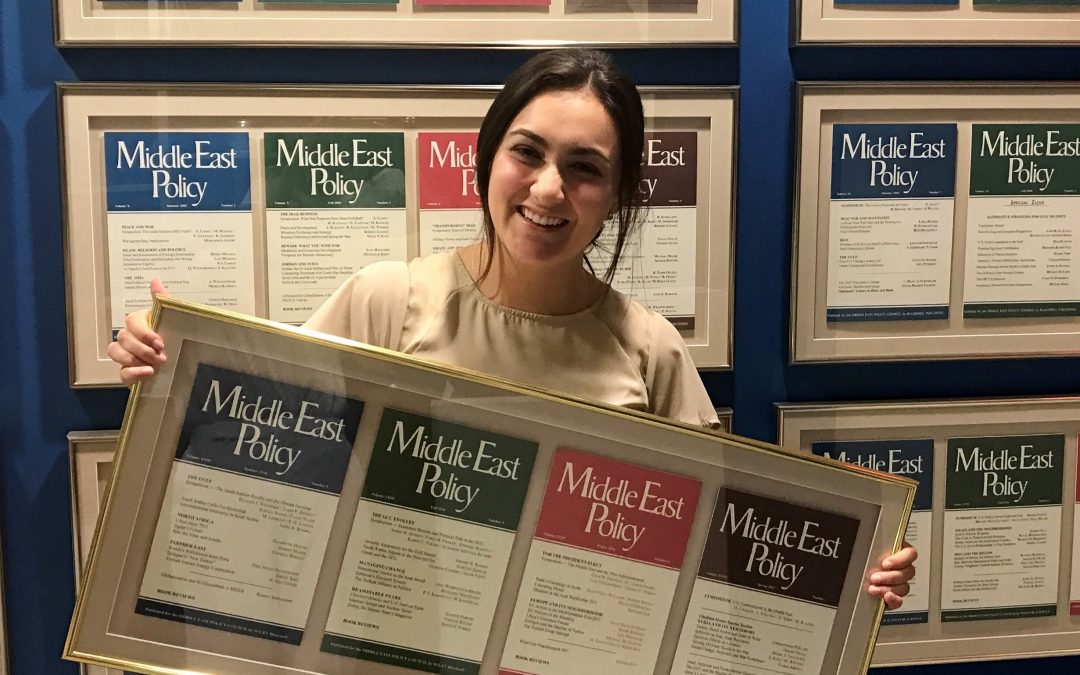
by Madison McHugh | Nov 15, 2017 | Internship Experiences, Undergraduate Students
My name is Gabrielle (Gabi) Hunt, and I’m a rising senior studying Diplomacy, Environmental Studies, and Arabic at Seton Hall. I wanted the organization I interned with this summer to involve work synthesizing all of my interests. Ultimately, I decided on Middle East Policy Council (MEPC) in Washington, D.C., and I could not imagine a better fit.
MEPC is a nonprofit think tank that focuses on education and advocacy work in Middle East issues. It publishes the leading Middle East affairs journal, Middle East Policy (MEP), hosts quarterly Capitol Hill conferences discussing current events, and has an educational outreach branch, TeachMideast, designed to make Middle East issues more accessible to K-12 teachers and students.
I was one of two interns at MEPC who dealt broadly with educational outreach, event coordination, and social media management, along with inputting edits and proofreading articles to be published in MEP. I also wrote a few of my own pieces on current events and completed a 10-week independent project with my fellow intern. For our project, we started a video series aimed at capturing the lives of Arab-Americans around the D.C. metropolitan area. The topics of their interviews typically encompassed how their professions, interests, and passions relate to their cultural identity.
In addition to the larger project, I conducted a series of small projects throughout the weeks – like writing TeachMideast focus pieces – which brought together my interdisciplinary interests. With focus pieces in particular, I was given the opportunity to write about anything I found interesting – from the Saudi Vision 2030 plans to reducing dependency on oil, to the origins of the Boycott, Divestment, and Sanctions movement.
I loved my 10 weeks working at MEPC, especially because I was given so much opportunity to be creative through self-guided projects. Through independent work, I strengthened my professional development and time management skills. I also enjoyed my inclusion in the publication process of MEP, not only because of my interests in writing and editing, but because the responsibility of accurately inputting edits and proofreading fine-tuned my attention to detail and precision. My favorite part about MEPC is that I always felt like a valuable team member whose input was valued.
Overall, I could not be happier with the senior leadership internship experience I had, and the time I was able to spend working in D.C.
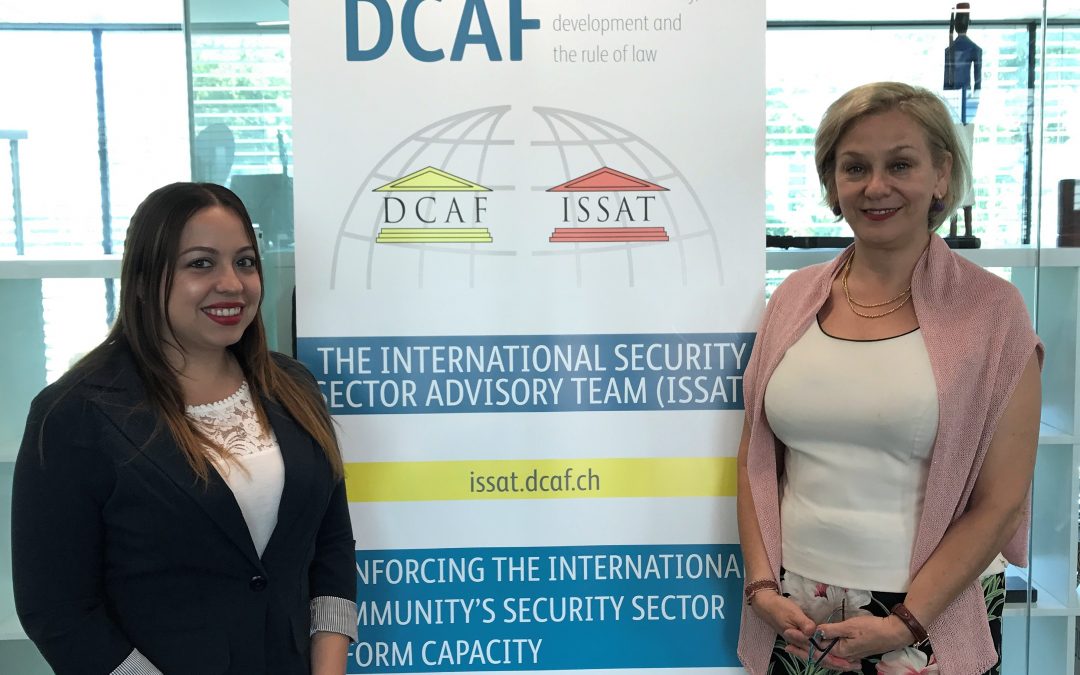
by Madison McHugh | Nov 1, 2017 | Graduate Students, Internship Experiences
My name is Marisela Rivera, and I am a Master of Arts candidate at Seton Hall`s School of Diplomacy and International Relations. Over the summer I had the pleasure of serving as the Sergio Vieira de Mello Fellow for the Geneva Centre for the Democratic Control of Armed Forces (DCAF) in Geneva, Switzerland, the international capital of the world. The fellowship honors a former United Nations Diplomat, Sergio Vieira de Mello, who was killed in the Canal Hotel bombing in Baghdad, Iraq in 2003. Mr. Vieira de Mello is remembered for his long and distinguished career with the UN as well as his efforts to promote peace, human rights and humanitarian aid.
Like Mr. Vieira de Mello, I am passionate about fulfilling peace and security for all. I specialized in two eminent concentrations to promote peace and security: International Law & Human Rights and International Security. My two specializations and my keen interest in Latin America have well prepared me for the fellowship. My host organization, DCAF, is an international foundation that is well-known for its support of security, development, and the rule of law.
Within the DCAF, I worked for the International Security Advisory Team (ISSAT). ISSAT was created to increase the capacity of the international community to support Security Sector Reform (SSR) processes, enhance the effectiveness and quality of SSR programming, and facilitate the coordination and coherence of international assistance for nationally-driven SSR processes. It focuses on four key services: advisory field support, training and capacity development, knowledge services, and advocacy and outreach.
Prior to my arrival, DCAF created a Latin America and Caribbean (LAC) department dedicated to Security Sector Reform. I worked with the director to set the foundation and sustainability flow for this particular department. Together, we created a strategy for LAC, as well as an overview of donors to the region. I utilized my social media and advertising skills to create a memorable LAC webpage, and I wrote country background notes, particularly in Latin American countries. In addition, I was tasked to develop a knowledge product for the Gender and Security section that applied a gender lens to explore the application of local ownership in SSR. The case study analyzed two countries and explore the lessons learned to increase the discussions on Women, Peace, and Security (WPS).
One of the most challenging and gratifying experiences was familiarizing myself with international security and human rights dialect in Spanish. Being of Colombian descent, Spanish is my first language. However, growing up in America and being part of the public education system, Spanish was not a priority. Through DCAF, I learned the importance of bilingualism and the various opportunities that it brings.
Overall, my time with DCAF was insightful and rewarding. I fulfilled many assignments in my area of study, and I was trusted with the duties of a Project Assistant as well as the work of an SSR Officer. My position at ISSAT offered first-hand experience in SSR, specifically in the international security aspect of my career. Given that this is the second year the Sergio Vieira de Mellow Fellowship was offered to a Seton Hall Graduate student, I would highly recommend my fellow peers to apply for this position in the future, and I know I will cherish the knowledge and experience gained with DCAF forever.
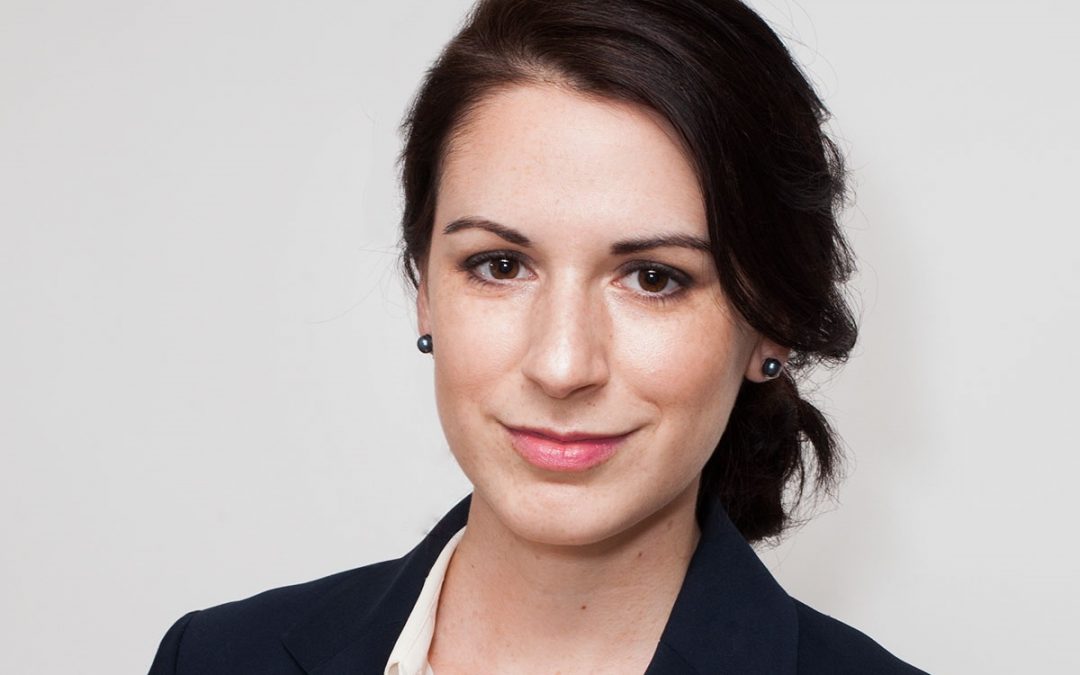
by Catherine Ruby | Jun 6, 2017 | Graduate Students, Internship Experiences
Emily Fox, M.A. May 2017
Carnegie Council on Ethics in International Affairs Internship
This spring, I had the opportunity to intern with the Carnegie Council on Ethics in International Affairs (EIA). I worked for Ethics & International Affairs, a journal publishing articles on current normative and ethical issues in foreign policy and international relations. One of my duties as an Editorial Intern was to act as the first point of assessment for all incoming submissions. In order to succeed at this task, I needed to have not only a strong theoretical background, but also a degree of familiarity with a wide array of current events. Thankfully, the School of Diplomacy has prepared me for these topics.
One of the most prominent debates in international relations ethics regards the policy and principle of the Responsibility to Protect, and many of the submissions I reviewed dealt with this topic. The knowledge I gained at the School’s United Nations Summer Intensive course was incredibly valuable for formulating assessments of these articles. Being able to hear firsthand from experts such as Hugh Dugan and Ed Luck really strengthened my background on the complexity of these issues and the opportunities and constraints the UN must navigate.
My skills in writing and editorial judgement were strengthened considerably by this internship, and I expanded my knowledge of international affairs by reading articles and essays by scholars. I learned a great deal about publishing and the peer-review process, and am able to participate and contribute in high-level meetings. Though I was lucky to have several years of professional experience prior to being hired at EIA, I have found that each professional environment teaches me something new about organization, communication, and workflow.
Should I choose to pursue a career as an editor, I will be prepared as my internship with EIA taught me a great deal about the requirements and challenges in the field, and has shown me the best practices for working through different stages of publication. As an intern, I often juggled several projects at once. My team at EIA was ready to provide guidance on prioritization and organization, which allowed me to complete my tasks efficiently without sacrificing quality.
The assignment I was most excited to complete at EIA was my book review. Each intern is invited to contribute a short review of a book of their choice for publication online and in the print journal. Because I could choose my book, I was able to pick something in an area in which I am interested. Not only was I able to read a book that interested me, but I also gained valuable writing experience from the exercise.
During my time at the internship, I tried to incorporate feedback whenever possible and volunteered for additional work when able. While I still have many opportunities for improvement, I think that applying these principles helped me to be successful thus far.
I would highly recommend my internship to others. The Carnegie Council is an excellent institution and a great place to be connected to. My coworkers have made me feel like a true member of the team, and their advice and guidance has been incredibly helpful for my professional development.
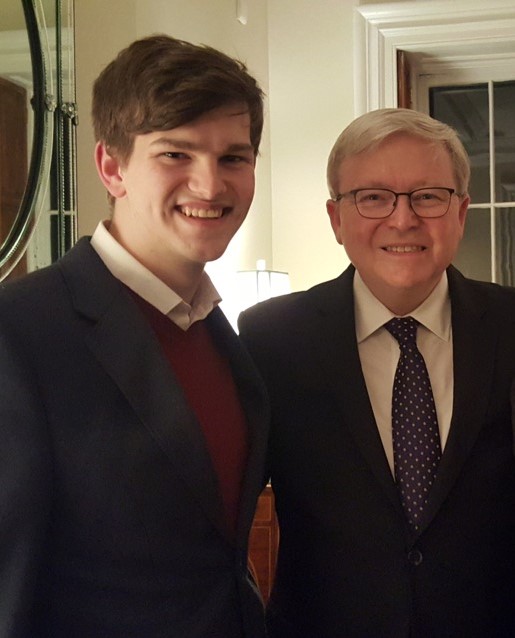
by Thomas Ashe | Feb 6, 2017 | Graduate Students, Internship Experiences
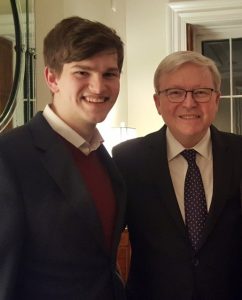
My name is Kevin Princic. I worked as an intern at the Asia Society Policy Institute in New York City. At Seton Hall University I am a second year graduate student pursuing a Master of Arts Degree in Diplomacy and International Relations with specializations in Foreign Policy Analysis as well as Global Negotiation and Conflict Management.
When applying to attend Seton Hall University’s School of Diplomacy and International Relations, I decided that one of the main goals of my graduate studies would be to branch out in my region of interest, Asia. I have studied Japan and China quite extensively; however, my knowledge of the rest of Asia was quite limited in comparison. With this goal in mind, I began my studies at Seton Hall but little did I know that my ambitions would lead me to an internship of a lifetime. At the School of Diplomacy and International Relations’ orientation, I first heard about the Asia Society from a colleague. She raved about her experience and encouraged me to apply for a position. This summer I took the plunge and applied to the Policy Institute and was so fortunate to receive an internship offer for the fall semester.
My work at the Asia Society Policy Institute has been instrumental in achieving my goal of becoming a well-rounded Asia scholar. One of the core responsibilities for interns with the Policy Institute is to conduct a press scan every day. Every Monday I began my day with a cup of coffee and several dozen news stories spanning all across Asia. It was duty to isolate the relevant stories, summarize them, and compile a list separated by sub-region. The final press scan usually contained around thirty different news articles. This task alone was instrumental in achieving my goal. Although I only completed the press scan on Mondays, I received it every day of the week from the other interns as well. This is just one of many instances in which the Asia Society is a full immersion learning experience.
I found that on more than one occasion that my work in the classroom at Seton Hall relates directly to my work at the Asia Society Policy Institute. For example, I was tasked with preparing a brief on North Korea’s nuclear programs and finding any related data. From my personal research I knew that this type of information was scarce due to North Korea’s isolationist nature. However, my relentless search proved fruitful for both myself and the Asia Society. The data I found helped me make progress on formulating my research design which will eventually become my Master’s Research Project and allowed me to provide a thorough brief to the Policy Institute. This is just one of many instances in which my work at the Asia Society and at Seton Hall intermingled.
The Asia Society Policy Institute is a think/do tank which makes it a little different from the typical think tank. My favorite aspect of the Policy Institute is its hands on approach to policy challenges in Asia. The Asia Society is also well known for its programming, bringing in prominent guests to speak on their research or practice. I was lucky enough to be working at the Asia Society as it held its United Nations General Assembly event series. During this series I assisted with events on topics ranging from North Korea’s nuclear program featuring both scholars and policy practitioners, to a dialogue on the Association of Southeast Asia Nations (ASEAN) 50th anniversary featuring delegates from several ASEAN states. The Asia Society even hosted the leader of Myanmar, Aung San Suu Kyi, who spoke on her efforts to democratize the country and reopen it to the world. Learning from these influential people through these events has been a truly unique and enlightening experience.
My experience at the Asia Society made me feel as though I am a part of something bigger that is having an impact in not only the United States, but also in Asia and even throughout the entire world.
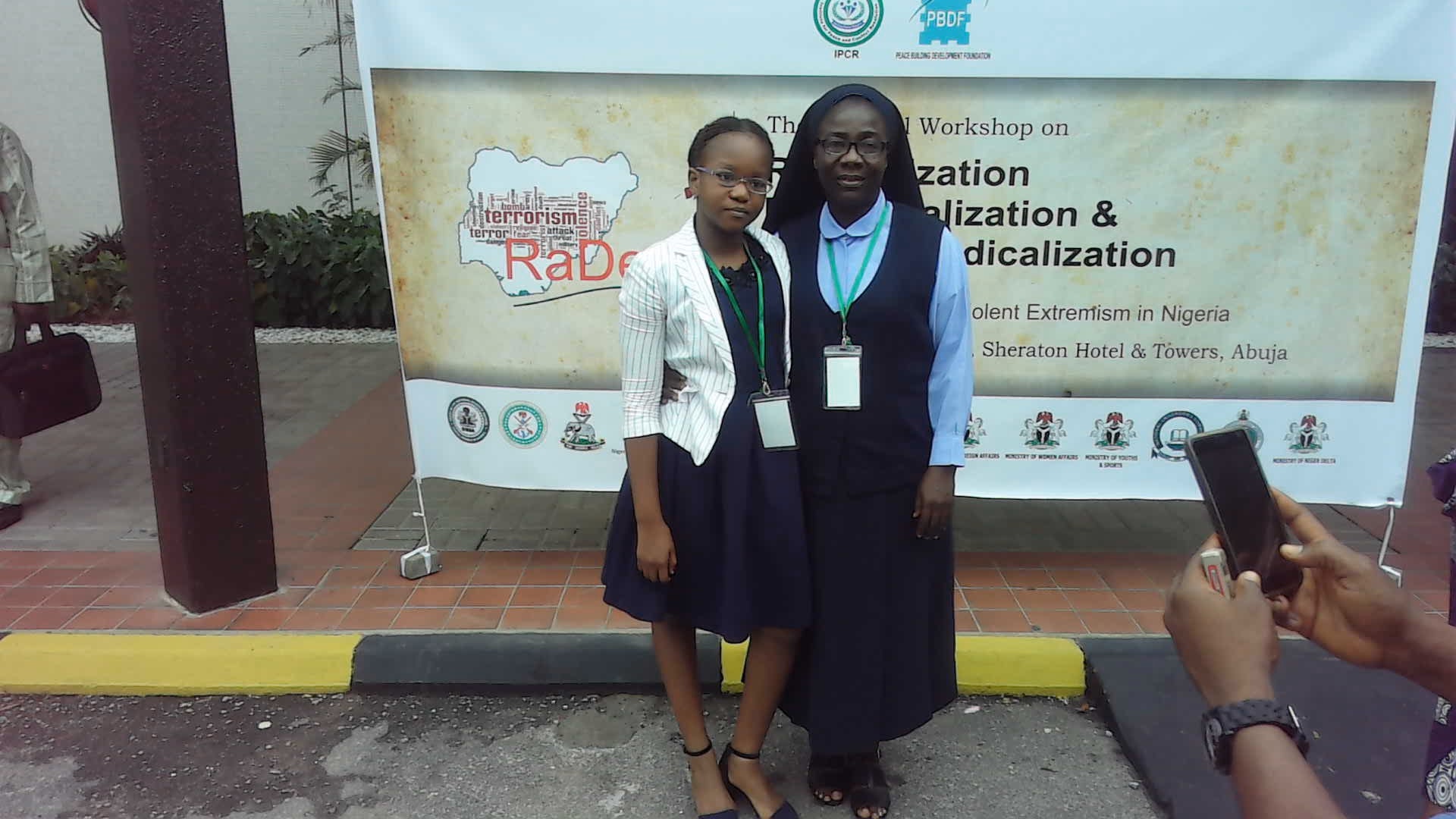
by Catherine Ruby | Nov 1, 2016 | Graduate Students, Internship Experiences
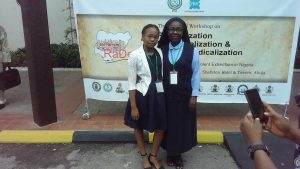
My name is Sister Mary John Bosco Ebere Amakwe and I am a graduate student at the School of Diplomacy and International Relations. I interned at The Institute for Peace and Conflict Resolution (IPCR) in Nigeria – at the Directorate of Internal Conflict Prevention and Resolution as a research assistant. This Institute was founded in 2000 under the Ministry of Foreign Affairs primarily as a research center, think-tank, and agency to strengthen Nigeria’s capacity for the promotion of peace and conflict prevention.
I chose to intern at this Institute because I was born and raised in Nigeria, a complex country where conflict is part of everyday life. I believe something has to be done because there is an urgent need for reconciliation and reconstruction of this great nation known as the “Giant of Africa.” and I want to be part of rebuilding efforts. Ultimately, I want to become a conflict mediator and my internship experience has absolutely solidified that passion to become one.
One of my very first assignments at the institute was to accompany a delegation which included the Director General of the Institute to the Embassy of Hungary that houses the United Nations High Commission for Refugee Agency (UNHCR) in Nigeria. The reason for the visit was to sign a Memorandum of Understanding (MoU) between the Institute and UNHCR. This signing is very important according to the UN Higher Commissioner for Nigeria and the Director General of IPCR because it is a way to formalize the partnership between the two bodies in their effort to further peace building efforts in Nigeria. UNHCR and IPCR also work together with different stakeholders in the country in revamping peace and taking preventive measures to stop conflict so that there will not be refugees and internally displaced people in the country. This is done by creating policy frameworks like personnel building, networking, and the implementation of all initiatives that will bring about conflict prevention and will lead to lasting peace in Nigeria. On July 11, 2016 there was another signing of a Memorandum of Understanding (MoU) between IPCR and Treasure Hunts – an NGO for peace and development in Nigeria which uses artwork, drama, plays, etc. for peace building. This experience fascinated me because it validated what I learned in the classroom and connected my course work as strategies for peacebuilding.
Finally, my internship offered me opportunities for networking. For instance, I had several conversations with Mrs. Paulette Dadey, the UN High Commissioner for Refugees in Nigeria; Mrs. Elizbeth Ekaete, the CEO of Emmanuel Royal Foundation for peacebuilding in families; Dr. Aliyu Ahmed-Hameed, principal consultant for Cardston Consulting Agency on peace research, policy and strategy; Dr. Marane Ngoulla, CEO of TOGUNA (the place of dialogue for peace) Foundation for peace and development. My last visit was with the Coordinator for the African First Ladies Peace Mission; and a member of the Nigerian House of Representatives. We discussed her role as a woman legislator representing her constituency in the House.
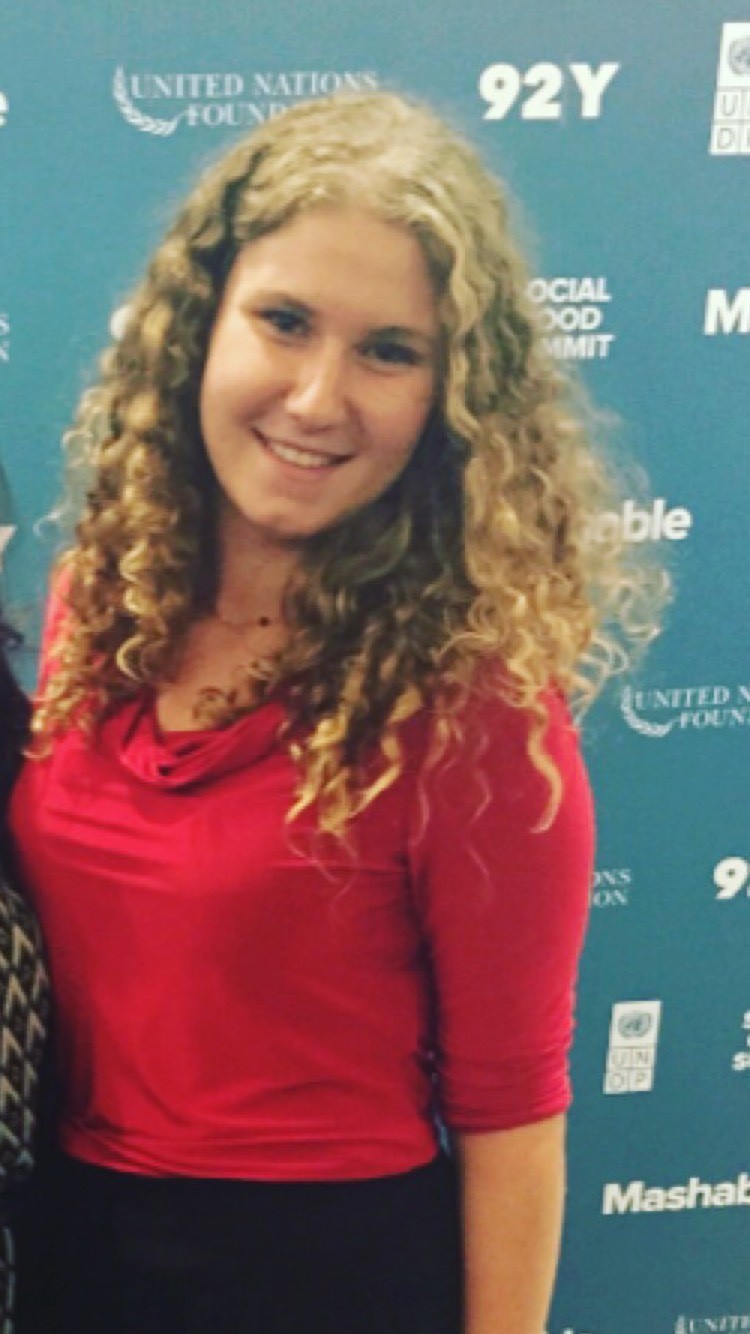
by Carolin Braxenthaler | May 5, 2016 | Internship Experiences, Undergraduate Students
My name is Elaina Estrin, I am a junior at the School of Diplomacy and International Relations, with minors in Economics and Modern Languages. I am interning with the United Nations Foundation (UNF) as a United Nations Relations and Policy intern. UNF is a nonprofit organization that combines the work of the UN with the work of others around the world to help tackle global issues.
One of my main responsibilities is to compile the daily update that is sent out to UNF staff and partners. The daily update includes any new information put out by the UN, including new appointments, reports released by various UN missions, updates from UN organizations, all briefings conducted at the UN, as well as any up to the minute news from countries in conflict around the world. This newsletter is a great source of news for anyone working in or with the UN. Other responsibilities at the UNF also include attending events at the UN that align with the goals of UNF, compiling briefings, and updating the staff about these events. I have been able to follow announcements on the Syria negotiations, post Paris Agreement talks, highlights of Davos (the World Economic Form), humanitarian financing, events predating the World Humanitarian Summit, and the Secretary General’s Plan of Action to prevent violent extremism just to name a few.
My classes at the School of Diplomacy have guided and prepared me for this internship opportunity. From classes like International Relations, which laid the groundwork for my knowledge in the field and introduced me to some of the issue areas that I am most passionate about today; to Institutions of Global Governance, which introduced me to the different actors in the international system, global problems, and global policymaking. The School of Diplomacy also introduced me to Public International Law and how different agreements at the UN translate legally, as well as what constitutes a human rights violation or a war crime. This understanding of the international community and international law is vital to work in the fast-paced environment of the UNF.
When UNF was first launched in 1998, its main purpose was to support UN causes. Over the years, UNF’s role has transformed from encouraging support for the UN to creating huge global campaigns in partnership with the UN on some of the biggest issues that humanity is facing in the 21st century. A lot of the work I do is in support of the new Sustainable Development Goals (SDGs), which are the world framework for the next 15 years. Some of the other issues UNF focuses on are child health, climate change, energy, technology, women and girls, and population.
I not only learned about the inner workings of a nonprofit organization, but also about the UN and its noble causes. Interning with UNF greatly improved my writing and critical thinking skills, which will be valuable in any profession. The knowledge I gained from researching different international issues for UNF has been the biggest takeaway; it has increased my passion and drive to create change for women and girls an in education.
by Catherine Ruby | Jul 1, 2013 | Graduate Students, Internship Experiences
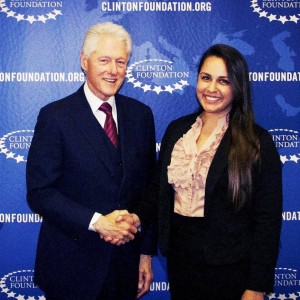
School of Diplomacy alumna Mery Arcila, M.A. ’13, interned for the Development and Philanthropy department at the Clinton Foundation in New York, NY during the Spring 2013 semester. Mery assisted the Development team in fundraising campaigns through events for the Millennium Network as well as the online giving programs. Mery had the opportunity to meet with former U.S. President Bill Clinton during a brown bag lunch event at the Foundation. This is the fourth year that The Clinton Foundation has partnered with the School to support student interns. The Clinton Foundation was established to improve global health and strengthen economies in local communities around the world; learn more via http://www.clintonfoundation.org/.










